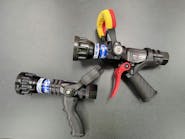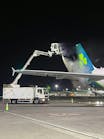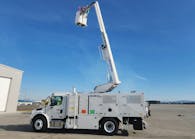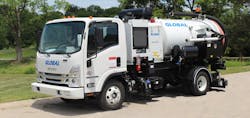Colder Weather Means Deicing and the Return of Aircraft Exterior Wash
The COVID-19 pandemic has had a profound impact on flight operations around the world. Airlines are now implementing cabin disinfecting/fogging programs, requiring masks and, in some cases, requiring temperature checks to establish a benchmark of flyer safety while communicating these safeguarding efforts to an increasing number of air travel passengers.
As the seasons shift and the climate gets colder in the north, airlines must now begin planning for deicing programs and the required exterior wash programs that maintain this treatment as a safer operation. One issue that most domestic carriers must address is that most exterior wash programs have been suspended as a function of decreased spending due to lower passenger traffic during the pandemic. It may not seem like winter should be a time for increased exterior wash, but because of winter operations and deicing, it becomes more important.
When asked about exterior wash in winter, Brian Giacona, vice president of operations for AccuFleet International said, “While many people might think that exterior wash is to make a plane look nice, like a car wash, what few realize is that it actually serves the function of removing other residues from the aircraft such as oil, hydraulic fluid and deicing fluid to make aircraft more fuel-efficient and enable them to fly safely.”
Per the FAA standardized ground deice program guidance, “all surfaces that have an aerodynamic-, control-, sensing-, movement- or measuring-function must be clean. All of these surfaces can not necessarily be cleaned and protected in the same conventional deicing/anti-icing manner as e.g. the wings. Some areas require only a cleaning operation while others need protection against freezing.”
The United Kingdom Civil Aviation Authority further iterates that: the repeated application of Type II, Type III or Type IV anti-icing fluid may cause residues to collect in aerodynamic quiet areas, cavities, and gaps. These residues may rehydrate and freeze under certain temperature changes, in high humidity and/or rain conditions. In addition, they may block or impede critical flight control systems.
An appropriate inspection and cleaning program should be established when using these types of fluids.
AccuFleet International has been providing exterior wash programs for the largest airlines in the United States for over 17 years. With 13 airports across the country, company officials are certain that they can create a custom program that will provide the compliance, proof of service delivery, analytic reporting, and finished product needed to ensure safer flights in the winter while improving the image of a given brand.




